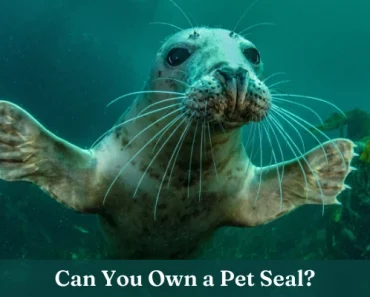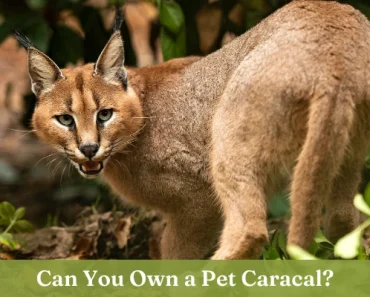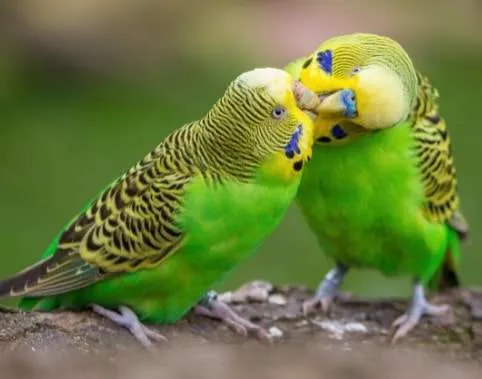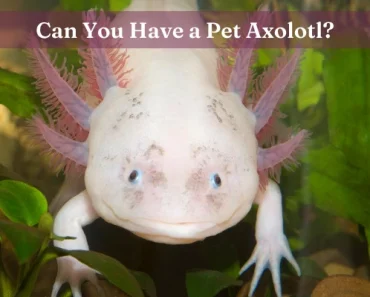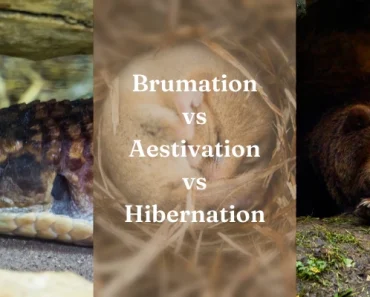If you’ve ever wondered if you can have a pet vulture, then you’ve found the right article.
Learn everything you’d ever need to know about vultures and whether you can have a vulture as a pet.
Not only do I tackle the legal aspects of vultures as pets, but I also give you a breakdown of everything about vultures including their diets, habitats, characteristics, and more.
Whether you live in the United States, Canada, Australia, or the United Kingdom you can learn all about pet vultures here and decide for yourself whether you think a vulture as a pet would be a good idea.
Can You Have a Pet Vulture?
Vultures are protected under the Migratory Bird Treaty Act of 1918 just like all other birds of prey and raptors. The Migratory Bird Act strictly prohibits the capturing, killing, trading, and transporting of any native birds and includes all of North America and other regions of the world.
This Act includes vultures and would make owning a pet vulture illegal no matter where you live.
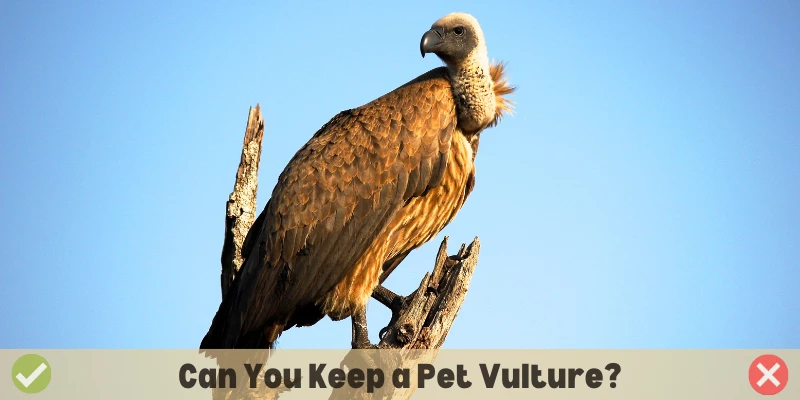
Can You Have a Pet Vulture in The United States (U.S.)?
No, it is illegal to have a pet vulture in the United States because native, wild birds of prey are protected by the Migratory Bird Treaty Act. This Act prohibits anyone from owning pet vultures within the United States and outlying territories.
The treaty specifically prohibits the capture, kill, trade, and transport of any vulture within the U.S unless you have been authorized to do so for a specific purpose with prior approval by the Department of Fish and Wildlife.
Can You Own a Pet Vulture in Canada?
Canada also abides by the Migratory Bird Treaty Act so you won’t be able to keep a pet vulture in Canada because vultures are illegal there just like in the U.S.
Can You Keep a Pet Vulture in Australia?
There are no native vultures found in Australia. Taking into account Australia’s import and export of native and wild animals, it would be unlikely you would be able to have a pet vulture in Australia.
Since vultures aren’t native to the continent of Australia, a pet vulture would need to be imported.
No bird species are allowed to be imported into Australia as pets except for selected species from New Zealand only.
This would make having a pet vulture in Australia both illegal and impossible.
Can You Have a Vulture as a Pet in The United Kingdom (UK)?
Wild birds of prey are not allowed to be kept legally in the UK according to the Wildlife and Countryside Act 1981. This Act would include a pet vulture as an illegal pet in the United Kingdom.
This Act is similar to the Migratory Bird Act because it states that no person can injure, kill, take, disturb, or trade native, wild animals (including vultures).
Since vultures are considered raptors or birds of prey, it is illegal to keep a pet vulture in the UK.
Exotic pet and animal laws will differ from region to region.
It is always best to check with local government and wildlife officials for accuracy on which animals are considered legal exotic pets and which exotic animals are considered illegal to own as pets in your area.
4 Vulture Species Found in The Americas
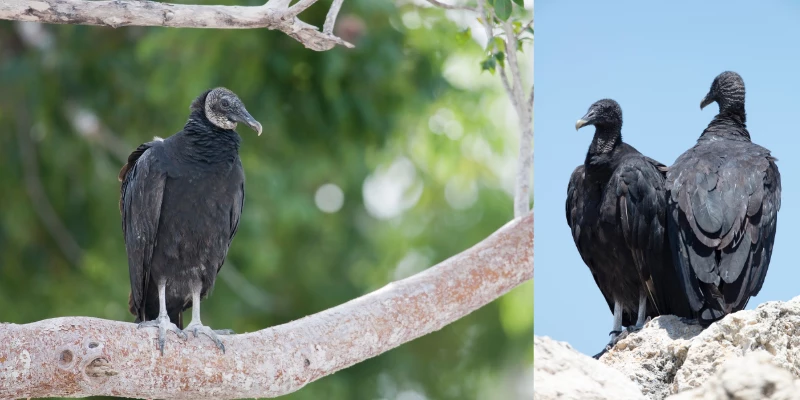
1. Black Vulture
Black vultures – also known as American black vultures – have a range extending from the northeastern United States down through Central and South America.
Black vultures are mainly black with a black belly, back, and head. They have some white on the tips of their wings but the rest of their body is black.
They are scavengers like other vulture species, but they are also more likely to kill prey when an opportunity arises, unlike most other vulture species.
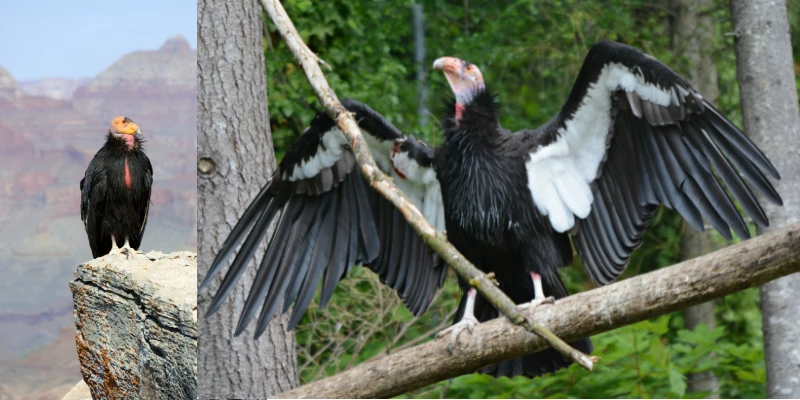
2. California Condor
California condors are the largest North American vulture and they are also the largest North American land bird.
Aside from the largest, California condors are also the rarest bird species with only around 500 in existence today.
Their population had once gone extinct in the wild but thanks to captive breeding, California condors were reintroduced into the wild in 1991.
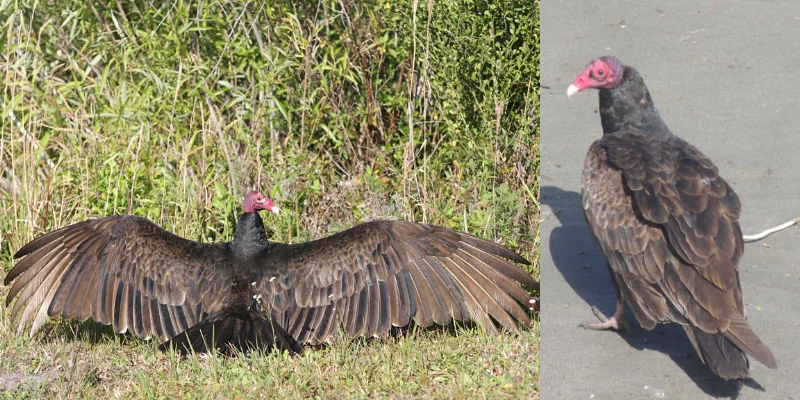
3. Turkey Vulture
Turkey vultures (also known as buzzards here in America) were given their names because they have bald red heads and dark feathers that closely resemble the heads of wild turkeys.
Turkey vultures are lanky birds that have teetering feet and a better sense of smell than other vultures such as black vultures.
Due to this better sense of smell, it is common to see other vulture bird species following turkey vultures around in search of their next meal.
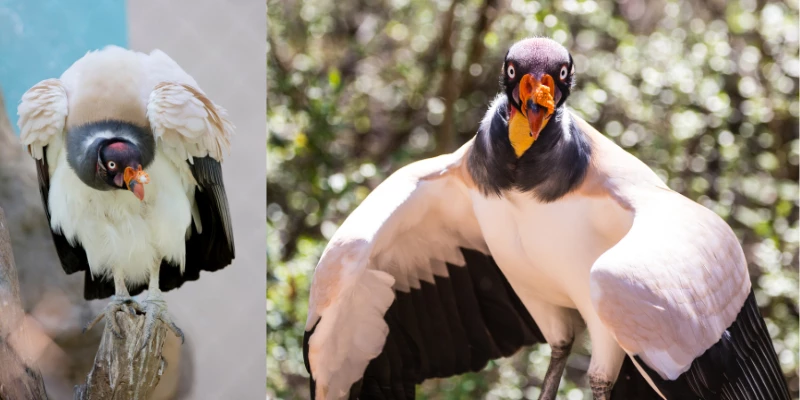
4. King Vulture
King vultures have a range from Central to South America and can be found in southern Mexico to southern Argentina.
They can grow to be between 2 to 3 feet tall and can weigh up to 8 pounds (3.7 kg).
King vultures prefer habitats of lowland dense tropical forests and aren’t usually found around human settlements.
They are scavengers and feed on dead meat, like the other vulture bird species.
Are Vultures Good Pets?
Vultures are not good pets because it is practically illegal to own a pet vulture no matter where you are in the world. Vultures wouldn’t make good pets for a variety of reasons, but just the fact that they are illegal as pets should be reason enough.
Aside from being illegal, pet vultures wouldn’t be a good fit for humans because they are unlikely to be tamed and will freak out at the sight of a corpse.
I don’t mean freak out in a shocked kind of way, but more of a freak out in a want to dig in and eat the corpse kind of way. Vultures are scavengers and opportunistic birds of prey.
They would prefer to scavenge more than hunt and that is mainly what they are known for.
A pet vulture could be slightly aggressive, a nuisance to have around other pets, and would not listen to you and not train like other birds.
I don’t know anyone that has ever considered having a pet vulture and they appear to be many good reasons why that hasn’t been the preferred pet for most people.
Vulture Physical Details
Vulture bird species come in a variety of sizes ranging from only a few pounds to more than thirty.
Andean condors are vultures with the most mass ranging from 17 to 33 pounds or 7.7 to 15 kilograms.
Andean condors are also the longest vultures with an average length between 3.3 to 4.3 feet.
Vulture Behavior
Check out common questions below about the behavior and temperament of vultures.
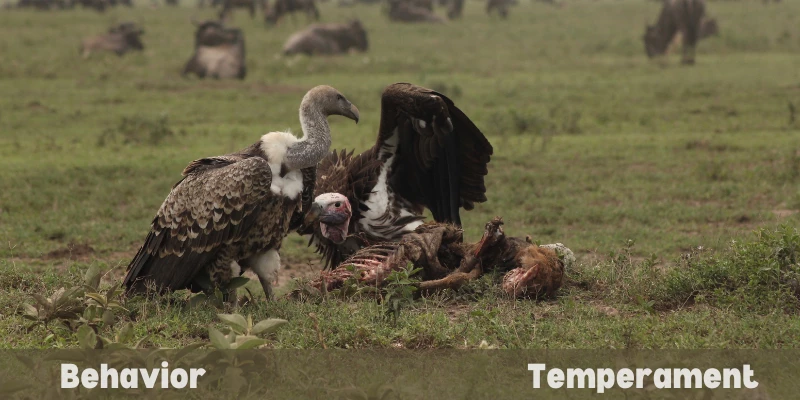
Are Vulture Birds Aggressive?
Vultures tend to not be aggressive toward humans. They are scavengers and lack the power and capabilities to do harm to us even if they wanted to.
They have no reason to attack humans and pose no threat, other than maybe being a pest.
Are Vulture Birds Dangerous?
Vulture birds are not dangerous to humans. They lack any real physical traits that would allow them to do any serious harm to a human.
They have no reason to be threatening and they actually help clean up.
Are Vulture Birds Affectionate?
Tame turkey vultures can show affection to whom they recognize as their caretakers but wild vultures aren’t likely to come up and give you a hug.
Are Vulture Birds Friendly?
Vultures aren’t necessarily friendly but they are also “not” not friendly if that makes any sense. They tend to keep their distance and are virtually harmless birds.
Are Vulture Birds Solitary?
Vultures will hunt in small and large groups. They often gather in large flocks and can be rather social. When a group of vultures comes together, it is called a “committee”, “venue”, or “volt”.
When a group of vultures takes flight, it is known as a “kettle”. And when a group of vultures feeds together, they are known as a “wake”.
Vulture Diet
Vultures don’t have a specific diet and aren’t very picky when it comes to their eating habits.
What do Vultures Eat?
Vultures will eat almost anything that is dead and rotting. Most vultures are scavengers and don’t actively hunt for live prey. They prefer their meals to already be dead.
Some black vultures will occasionally kill live prey but the majority of vultures prefer to feast on dead meat.
25 Commonly Asked Questions About Vulture Birds
Below is a list of 25 common questions we see get asked all the time about vultures.
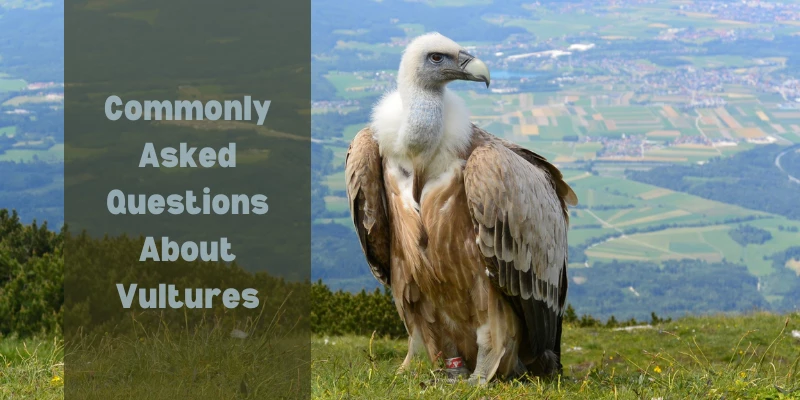
1. What’s the Difference Between Buzzards and Vultures?
Some of the key differences between buzzards and vultures include:
- Vultures have bald heads while buzzards do not
- Buzzards have strong beaks while vultures have weaker beaks
- Buzzards hunt and kill most of their prey while vultures scavenge for the majority of their meals
However, in some places, the terms can be a bit confusing.
In America, you may hear some people refer to turkey vultures as buzzards while other countries refer to buzzards as hawks. It just depends on where you live.
2. Do Vulture Birds Eat Humans?
Vulture birds lack the capability to kill a human and most other animals.
They are scavengers and will feast on dead carcasses (including humans), but you don’t have to worry about a vulture attacking you for the purpose of snacking on you.
3. Do Vulture Birds Eat Dogs or Cats?
Vultures are not picky eaters. They will eat practically anything that is dead and rotting. No, they won’t kill your cat or dog and eat it, but they will eat a dead cat or dog.
4. What Does It Mean When You See a Vulture Bird?
Seeing a vulture bird doesn’t necessarily mean anything. If they are sticking around and circling, then it likely means that there is a dead animal somewhere in the area.
5. Why Are Vultures Around My House?
If you have vultures around your house, there is a dead carcass somewhere nearby. Vultures are drawn to death and are carrion eaters.
If they are circling around your house, there is probably a dead animal somewhere outside close by.
6. How Do You Keep Vulture Birds Away?
If you are just trying to get rid of a vulture that is squatting around your house, you can try loud noises such as non-lethal weapons that go bang or fireworks.
If you have a vulture problem and need a longer-term solution, you can set up electric bird-shock tracks, motion-activated sprinklers, scarecrow kites, roosting spikes, owl decoys, reflections, or netting.
7. Are Vultures Evil?
Vultures aren’t evil. They just get a bad reputation because they enjoy dining on rotting corpses.
They are just like other animals, trying to survive in the circle of life the best way they know how.
8. Which Animals Do Vultures Eat?
Vultures are not picky birds and will eat most things that have died and are rotting. They are attracted to the smell of the rot, which they can smell from considerable distances.
9. Do Vultures Make Noise?
Vultures don’t have complex vocal cords so they can’t vocalize like other birds. They rely on simple sounds such as grunting, clacking, and hissing.
10. Where Do Vulture Birds Nest?
Vultures aren’t very picky when it comes to finding a place for nesting. Vulture birds will build nests in caves, downed trees, hollow logs, animal burrows, thickets, ledges, other abandoned bird nests, and a variety of other places.
11. Does America Have Vultures?
The United States has three native vulture bird species that include black vultures, California condors, and turkey vultures (also called buzzards by some in the U.S.).
12. Are Vulture Birds Dirty?
Vulture birds have this stigma that surrounds them because vultures are known as scavengers that eat dead flesh. However, vultures are no dirtier than any other wild animal.
13. What Are Vultures Attracted To?
Vultures are attracted to the gases that rotting corpses emit. While you and I may find it disgusting, vultures are quite attracted to the smell.
14. What Part of the Body Do Vultures Eat First?
As gross or terrifying as this may sound, vultures tend to go for the softer spots on a carcass and will eat the eyes and the butt first.
15. Can Vultures Sense Death?
Vultures can smell death from more than a mile away. They can’t sense that something is about to die because they rely on the gases that rotting flesh emits.
If an animal isn’t dead yet, there are no gases emitting, so a vulture won’t know until the animal is already dead once it picks up the aroma in the air.
16. What Are Vultures Afraid Of?
Vultures are afraid of owls and hawks and will get startled by loud, unexpected sounds.
If you have a vulture problem, you can try owl and hawk decoys and sounds to get rid of them.
17. Are Vulture Birds Smart?
Some vultures are very intelligent with black vultures being some of the most intelligent vultures.
You may not be able to scare away some black vultures with sounds and lights like other birds because they are smart enough to know that they won’t get hurt by sounds and lights.
18. Do Vultures Scream, Talk, or Sing?
Vultures do not scream, talk, or sing. Since they don’t have complex vocal cords, vultures are limited to bill clacks, hisses, grunts, and similar types of sounds for communication.
19. Why Are Vulture Birds Bald?
Vulture birds are bald because it helps them stay cleaner. If they had feathers on the top of their heads, they would become matted and extremely foul with dead pieces of meat from their scavenging.
20. Do Vultures Eat Animals that Are Still Alive (living animals)?
Some black vultures will kill live prey on occasion but most vultures stick to dead animals for scavenging.
Turkey vultures will rarely ever be seen catching and killing any prey. They prefer animals that are already dead.
21. Why Do Vultures Circle?
Vultures circle as a scouting maneuver. They are circling to ensure there are no predators around and that it is safe to land before they start to feast.
If there are other predators on land, they will circle the carcass until the other predators have left.
22. Do Vulture Birds Migrate?
Some turkey vultures in the southern U.S. stay put all year round.
Vultures in Canada and the northern states may migrate a short distance down to the southern United States while other northeastern birds migrate south all the way to Central and South America.
23. Do Vultures Carry Diseases?
The droppings of vultures and parasites found within vulture nests can carry serious diseases such as encephalitis, meningitis, salmonella, toxoplasmosis, and a host of other diseases.
24. Do Vultures Eat Dead Vultures?
Vultures will eat other dead vultures because they enjoy most things that are dead and rotting.
They don’t live with a conscious and have no reason to not eat their own kind when their kind is the rotting corpse that is giving off the pungent smell to which vultures are attracted.
25. Are Vultures Raptors?
Vultures are sometimes considered raptors even though they aren’t typical birds of prey because vultures are mainly scavengers that eat carrion (dead meat) and don’t have sharp talons like other raptors.
Recap
After reading this article, I hope you are well-informed on why a pet vulture wouldn’t be a good idea and why a vulture as a pet is illegal in most parts of the world.
While most people see vultures as a bad sign or bad omen, they are actually good for the environment by helping clean up waste.
I for one, wouldn’t want a vulture as a pet, but I’m sure there are some people out there that do.
I am not judging, rather I’m just providing the best information I can on pet vultures, different types of vulture birds, and providing other valuable information that may benefit you in some way.
If you enjoyed reading this article about vultures, check out this section on exotic pets.
